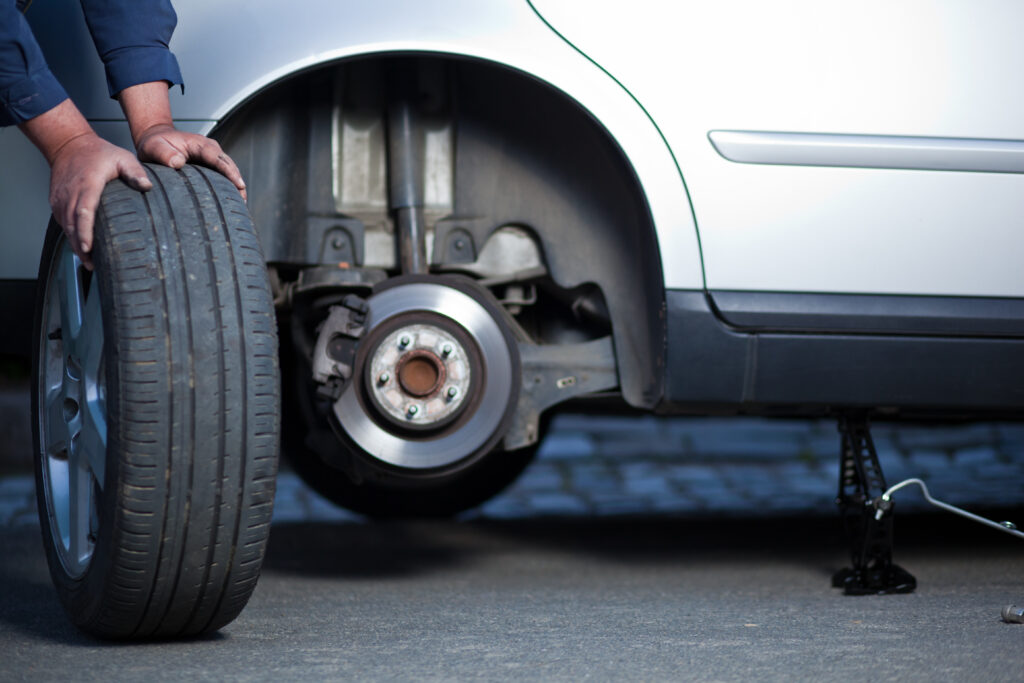
While we know you probably don’t want to think about winter weather before the season begins, it is important to consider a couple of important investments ahead of time, including whether you will get winter tires installed on your vehicle this year. But are they worth the investment?
At Paskett Auto, we want you to understand why winter tires are worth the investment, as well as who should get them and when they should be installed. If you are on the fence about making this investment, continue reading to learn why it might save you money long-term.
How Much Do Winter Tires Cost?
One major factor that may impact whether you consider investing in winter tires this season is the cost. If you just replaced your tires, you might not want to spend more money on a set of special tires just for one season. On average, a new set of winter tires may cost between $800 and $1,200.
However, this price may fluctuate a bit based on the type of vehicle you drive, and you may spend more than this average price. While this may seem like a more substantial investment than you are interested in making, it may save you money in the long run, avoiding accidents due to unsafe, inclement weather.
Who Should Invest In Them?
If you often brag to your family about wearing a pair of shorts and sandals through the winter months, we think it’s safe to say a set of winter tires probably isn’t the right investment for your vehicle. However, if you get a light to moderate dusting of snow throughout the winter, you should definitely consider getting a set for your vehicle.
As snow falls and the weather stays below freezing, snowpack and ice on your roads may begin to build. If you live in a place with a heavy layer of snow and regularly drive on snowpack or ice, you should invest.

Why Should You Get Winter Tires?
There are many winter weather conditions that make driving on the road more dangerous than normal. Whether dealing with heavy snowfall, black ice, or blowing snow drifts, you should do everything you can to keep yourself and your car safe. If you are considering getting a set of winter tires for your vehicle, consider the following benefits:
- They offer better traction: While you may have new tires with fresh tread, it may not be as good at dealing with snow. The tread on winter tires pushes snow outward, preventing it from building up in the tread of your tires. With improved tread, you’ll find that your car has much better traction.
- Reduce the risk of hydroplaning: Hydroplaning happens when the wheels of your vehicle aren’t in contact with the road’s surface due to wet pavement and standing water. When making the investment in these new tires, you reduce your risk of hydroplaning during inclement weather.
- They’re more flexible: During the winter months, the rubber of your tires may harden, making it more difficult for them to grip the road. They are more flexible than standard tires, allowing them to grip the road better.
Understanding The Anatomy Of Winter Tires
You may wonder how different these tires can be from standard tires and how these differences make them a better fit for your car through the winter months. There are a few distinct differences between these tires, including the following:
- Added Studs: While studs aren’t a feature of every winter tire, they are not uncommon and benefit you greatly. Studs provide better traction, especially on slush or snow-pack-covered roads.
- Better Rubber: As we mentioned above, the rubber on winter tires is different than the rubber on standard tires. This rubber is more flexible and performs better in below-freezing temperatures.
- Improved Tread Pattern: The tread on winter tires varies greatly from standard tires. These tires feature deeper treads to accommodate snow, with slots to make traction on ice easier.

When Do You Install Them On Your Car?
If you decide to make the investment in winter tires, you should ensure they are installed on your car at an adequate time to guarantee your protection. Generally, it is recommended that you get your tires installed on your car when the weather late at night or early in the morning is close to or below 40º F.
Installing your tires when the weather hits 40º F or below guarantees that your standard tires are kept safe from freezing temperatures that may damage the rubber. Additionally, you ensure your tires are put on the car before winter weather rolls in.
Can You Use Them All Year?
When you buy a bathing suit for the summer, you probably don’t think about how much use you are going to get out of it during the winter. That’s because this clothing wasn’t designed for colder weather. Much like weather-specific clothing, winter tires are not appropriate for year-round weather.
We understand getting these tires changed out at the end of the season is inconvenient. However, they aren’t equipped for regular use in warmer weather. These tires wear more quickly due to the use of softer rubber and warmer temperatures. Additionally, braking is more difficult and may require more distance to do so safely.
Do All-Season Tires Work As Well?
If you aren’t interested in getting tires you may only use for a portion of the year, you may consider investing in all-season tires instead. When considering this investment instead, you should consider your local weather.
All-season tires are a wonderful investment if you get minimal snow throughout the winter or only deal with an occasional winter storm. However, if you get heavier snow or it builds up on the road more frequently, you should instead make the investment in winter tires. They are better equipped to handle more inclement weather that leads to unsafe road conditions.
Investing In A Tire Upgrade With Paskett Auto

If you are considering making an investment in winter tires this year, you should work with a team of professionals you can trust. At Paskett Auto, our team of trained experts is confident that they can quickly and easily transition you from standard tires to winter tires, and you’ll be back on the road sooner. In addition to our tire services, we perform routine vehicle maintenance, emissions testing, brake services, and more.
If you are interested in scheduling an appointment to install winter tires on your vehicle or would like to speak to a team member about the additional services we provide, contact us today.

